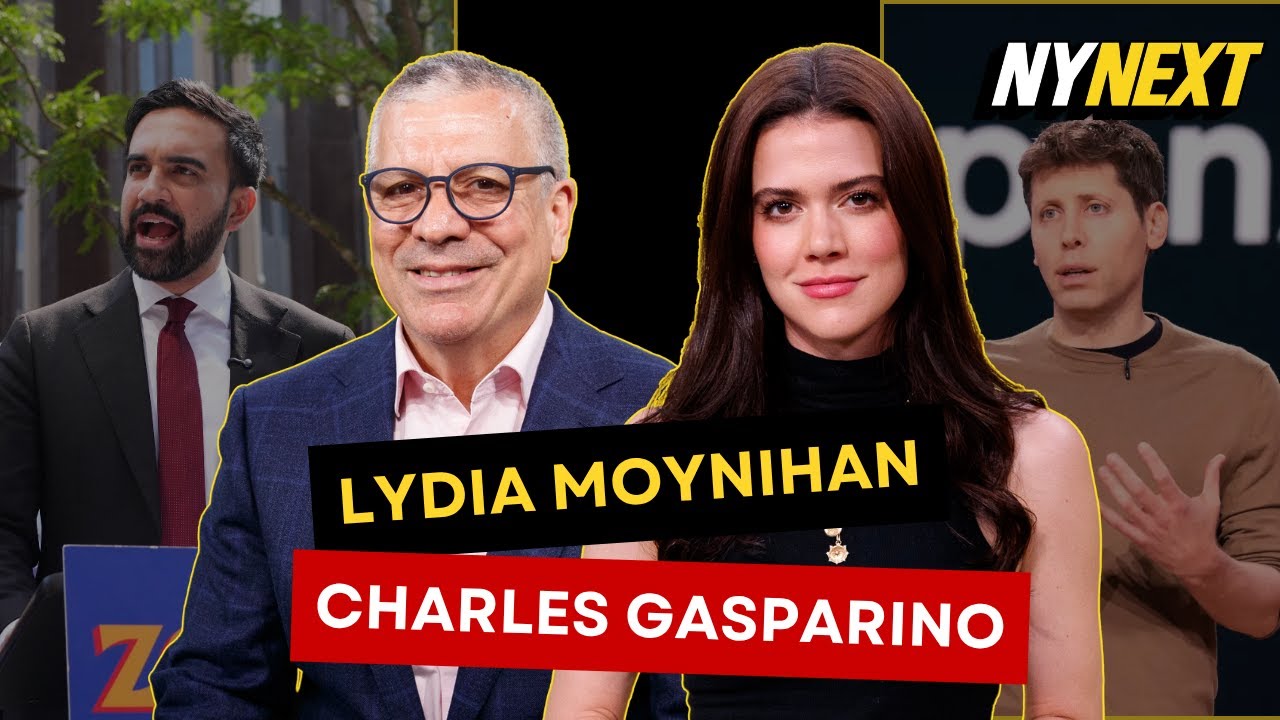In this episode of NYNext’s Reporter Roundtable, Lydia Moahan and Charles Gasparino discuss OpenAI’s partnership with Broadcom to develop custom AI chips, the evolving market dynamics amid fears of a tech bubble, and the uneven adoption of AI across industries like law and finance. They also explore the potential presidential pardon for Binance’s Changpeng Zhao, the complexities of regulating cryptocurrency, and the political climate surrounding the NYC mayoral race and tech industry concerns about government overreach.
OpenAI’s big bet, Trump’s crypto turn & NYC braces for Zohran Mamdani | Reporter Roundtable | NYNext
In this episode of the Reporter Roundtable on NYNext, financial correspondent Lydia Moahan and Fox Business correspondent Charles Gasparino discuss several major topics shaping business, technology, and politics. They begin by highlighting the significant partnership between OpenAI and Broadcom to develop custom AI chips and computer systems tailored for OpenAI’s needs. This collaboration is expected to drive productivity and economic growth, counterbalancing some of the negative impacts of trade tensions like the Trump-era tariffs. The conversation emphasizes how AI is poised to transform industries much like the internet did, though with a more profound effect on productivity.
The hosts delve into the current market sentiment, noting that fears of a bubble reminiscent of the 1929 crash have been fueled by Andrew Ross Sorkin’s new book. However, they argue that while some overinvestment and market corrections are inevitable, this is a natural part of capitalism’s creative destruction process. They draw parallels to past technological booms, such as the internet bubble, which despite initial crashes, ultimately led to the rise of transformative companies like Amazon and Google. The discussion underscores that a market regrouping is healthy and necessary for sustainable growth.
Moahan and Gasparino also touch on the uneven adoption of AI across sectors, particularly in law and finance. While AI could drastically reduce billable hours in law firms, there is resistance due to misaligned incentives—firms benefit financially from billing more hours rather than fewer. Similarly, in financial services, many roles remain intact despite technological advances because of job preservation interests. They highlight the broader issue of overstaffing in financial services, especially among hedge fund managers, who often do not create proportional value and face pressure to justify their fees.
A significant scoop discussed is the potential presidential pardon for Changpeng Zhao (CZ), the co-founder and former CEO of Binance, who served four months in jail on a bank secrecy violation charge. The hosts explore the complexities surrounding CZ’s case, comparing it to other high-profile financial scandals where executives avoided jail time despite questionable activities. They debate the responsibility of platform operators for illicit activities conducted by users, noting the ongoing legal and ethical challenges in regulating emerging technologies like cryptocurrency exchanges. The possibility of a pardon reflects broader tensions between innovation, regulation, and political considerations.
Finally, the conversation shifts to the upcoming New York City mayoral debate, with skepticism about its potential impact unless a candidate makes a significant misstep or drops out afterward. They also discuss the broader political climate, including Silicon Valley’s and the crypto industry’s concerns about government overreach, which has influenced their support for Trump. The episode closes by emphasizing the intersection of technology, politics, and business, highlighting how these forces continue to shape the economic and regulatory landscape.
